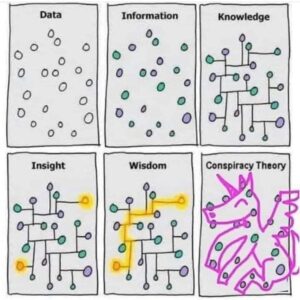 The outbreak of COVID-19 in 2020 has brought the term “infodemia” to the forefront of public discourse. Infodemia refers to an epidemic of false and misleading information that spreads rapidly in the online space. It is a manifestation of the phenomenon known as “post-truth”, a term that describes a reduction or negation of the role of facts in public life. In the online world, fake news, rumors, and conspiracy theories have become prevalent, challenging the public, who often lacks the time, motivation, and knowledge required to evaluate information, to form a fact-based understanding of the world.
The outbreak of COVID-19 in 2020 has brought the term “infodemia” to the forefront of public discourse. Infodemia refers to an epidemic of false and misleading information that spreads rapidly in the online space. It is a manifestation of the phenomenon known as “post-truth”, a term that describes a reduction or negation of the role of facts in public life. In the online world, fake news, rumors, and conspiracy theories have become prevalent, challenging the public, who often lacks the time, motivation, and knowledge required to evaluate information, to form a fact-based understanding of the world.
The distribution of false and misleading information is not a new phenomenon; however, the online space has expanded its spreading to unprecedented levels, particularly in politics, international relations, as well as science, and health.
This project focuses on different perspectives of the post-truth phenomena: their potential consequences, the factors driving their spread, the characteristics of susceptible audiences, and the potential educational solutions to handle the post-truth phenomena prevalent in the online space in the 21st century.
Publications:
“Post-Truth” Phenomena: Definitions, Consequences and Solutions